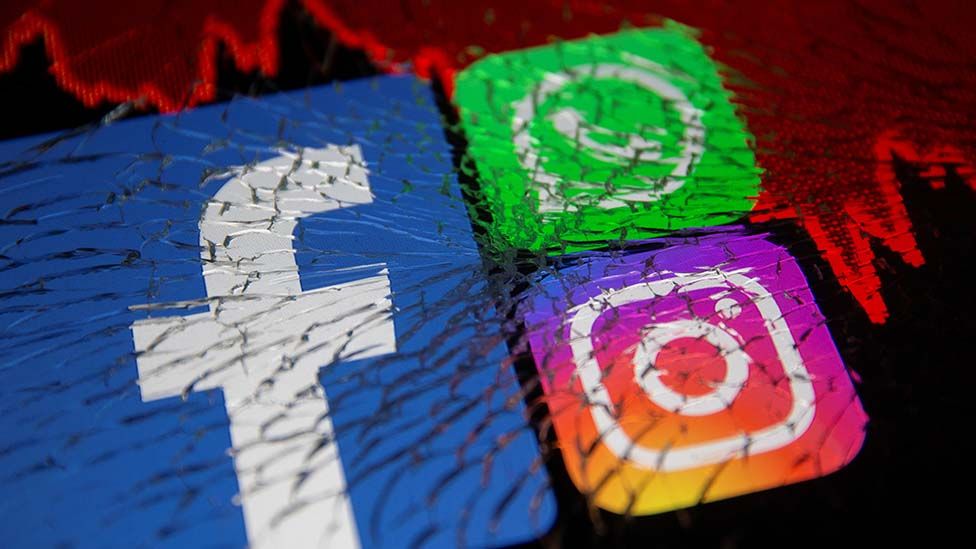Facebook has apologised after it stopped working for users around the world for several hours on Monday.
WhatsApp and Instagram – which are owned by the company – were also down.
What was the problem?
In a nutshell, Facebook’s systems stopped talking to the wider internet.
It was as if “someone had pulled the cables from their data centres all at once and disconnected them from the internet”, explained web infrastructure firm Cloudflare.
Facebook’s explanation was a little more technical.
It said “configuration changes on the backbone routers that co-ordinate network traffic between our data centres caused issues that interrupted this communication”. This had a “cascading effect… bringing our services to a halt”.
What’s the explanation?
The internet breaks down into hundreds of thousands of networks. Big firms like Facebook have their own larger networks – known as autonomous systems.
When you want to visit Facebook (or Instagram or WhatsApp), your computer has to connect with their network, using the Border Gateway Protocol (BGP) – a kind of postal service for the internet.
In order to direct people to the websites they want to visit, BGP looks at all of the available paths that data could travel and picks the best route.
On Monday Facebook suddenly stopped providing the information the system needed to function.
It meant nobody’s computers had any way of connecting to Facebook, Instagram and WhatsApp.
How was this allowed to happen?
A flurry of reports began around 16:45 BST on Monday that Facebook, Instagram and WhatsApp were not working.
At first, this caused the usual jokes about how people would cope, and jibes from rivals such as Twitter.
But it soon became clear that this was a more serious issue – with reports of mayhem at Facebook’s California headquarters.
Sheera Frenkel, a tech reporter for the New York Times, told the BBC part of the reason it took so long to fix was because “the people trying to figure out what this problem was couldn’t even physically get into the building” to work out what had gone wrong.
It also created a huge increase in traffic for other sites and services, as people discussed the problem or searched for alternative social media platforms.
Whether the issue was due to a software bug or simple human error, we do not yet know.
However, the conspiracy theories are already circulating – deliberate foul play from a Facebook insider being just one of many.
How has Facebook reacted?
Facebook founder Mark Zuckerberg, rather embarrassingly, had to turn to rival network Twitter to apologise.
Facebook, Instagram, WhatsApp and Messenger are coming back online now. Sorry for the disruption today — I know how much you rely on our services to stay connected with the people you care about.
Posted by Mark Zuckerberg on Monday, October 4, 2021
Analyst Mike Proulx says the incident raises questions about the way Facebook brought lots of its technical operations together in recent years.
He says it made them more efficient but means that if one thing goes wrong there can be “a cascading effect, like old-school Christmas lights where one goes out, they all go out”.
There are also suggestions that this outage – along with similar events in recent years – demonstrates the problem of so much of the world’s communications being concentrated among a few big global firms.
While not having access to Facebook’s service was just an inconvenience for many, for small businesses in countries in the developing world it was a disaster.
For others it would have meant a complete communication blackout as Facebook, WhatsApp and Instagram are the sole platforms used by many for news and speaking to relatives and friends.
How much money has Facebook lost?
Perhaps the biggest issue for Facebook itself will have been the effect it had on its revenue and stock price. Ads weren’t served for over six hours across is platforms.
According to some, the outage has cost it more than $6bn (£4.4bn), with its shares dropping nearly 5%.
And the bad week for Facebook continues later today when a whistle-blower responsible for leaking many internal documents, takes the stand at a US Senate hearing.


